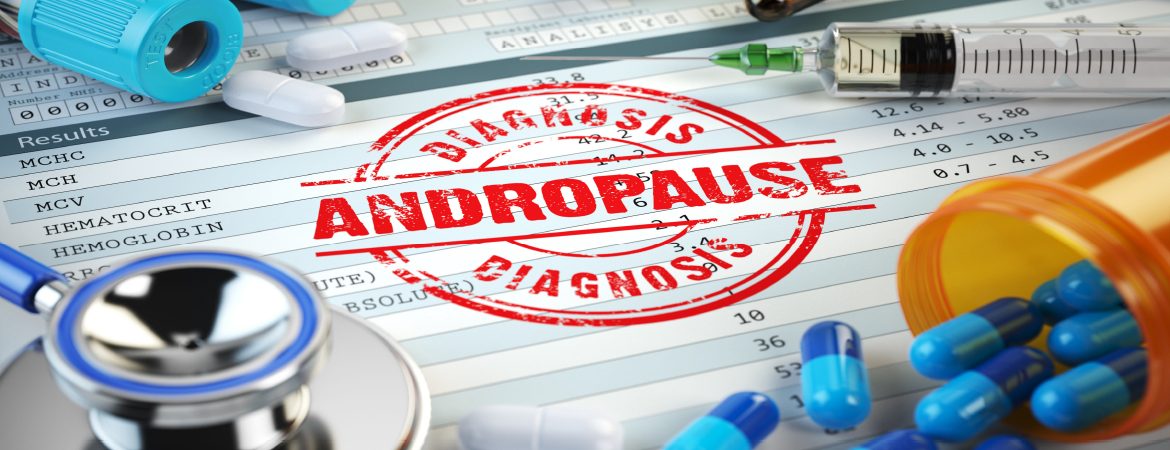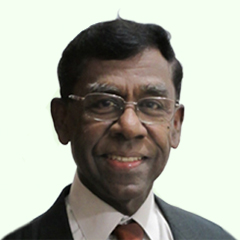
Andropause for Men by Prof P Ganesan Adaikan
Question
My husband is in his late 50s and has recently become short-tempered and impatient. I have recently heard that the males have a possibility of getting menopause. Does male menopause cause this behavioral change? When will the guys start to experience menopause?
Answer
The male sex hormone – testosterone production declines naturally with age in men starting around 40 years. However, unlike the sudden, drastic fall in oestrogen levels in women at the time of menopause, testosterone level in men makes a slower, progressive dip in midlife and beyond. Technically, this process is called ‘late onset hypogonadism’ (LOH). It is also referred to commonly as ‘Andropause’ or ‘Male menopause’. Such a reduction in testosterone level in men can cause lack of desire or loss of libido (for sexual attempts) and a decreased frequency of sexual activity within a couple relationship. In males, testosterone is also known to influence the ability to fall asleep, mood regulation, cognitive function, and ability to manage stress, maintain muscle tone, provide a sense of well-being and protect several of the metabolic activities. Therefore, when there is an age-related decrease in testosterone levels, all the above mentioned functions are likely to be affected resulting in negative impacts on quality of life. Additionally, studies have established that there is a strong association between metabolic syndrome (which includes obesity, diabetes, hypertension and dyslipidemia) in men with low testosterone levels, loss of libido and other sexual function.
Common sexual complaints in men with LOH may include reduced erectile capacity and diminished nocturnal (night-time) erections, reduced ejaculation strength and volume and compromised quality of orgasm. The other symptoms of low testosterone such as insomnia, mood swings, irritability and tiredness may also overlap on the sexual quality of life affecting physical and emotional intimacy with the partner. In a Subfertility / Andrology setting, about a third of patients with erectile dysfunction were found to have low testosterone with compromised interest for sexual activity (Adaikan et al 1999). Hormone therapy with testosterone improved the outcome of other treatment approaches for ED in these patients.
Now with the global shift in trend to a rapidly aging population, testosterone deficiency has come to be accepted as an inevitable problem of aging per se in man. Applying the observations over a quarter of century that replacement of hormones can effectively reverse the signs and symptoms of menopause in women, the consideration of hormone therapy for aging males was conceived. Over the last decade, there is a huge amount of literature on the relative merits of testosterone replacement therapy for andropause in aging male. There are some thoughts that testosterone may be a panacea for the detrimental effects of aging ranging from cognition to loss of libido and erectile dysfunction. Scientific evidence points to increase in bone density and muscle strength, improvement of mood and energy levels and restoration of libido and other sexual functions with such treatment.
When indicated, the potential candidates for testosterone replacement therapy will undergo thorough clinical and hormonal screening. The testosterone treatment will be carefully tailored on the basis of pros and cons or benefit versus risk. Some important concerns of testosterone replacement are effects on prostate and polycythaemia. There are more treatment options in the recent times with the emergence of several types of testosterone preparations which include oral, injectable and transdermal preparations; replacement therapy appears to be safe for the vast majority of hypogonadal men. Testosterone is notably contraindicated in men with carcinoma of prostate or breast and cardiovascular concerns. As it stands now, the administration of testosterone is not a means of reversing the aging process in men, but it offers considerable benefits to men suffering from late onset hypogonadism.

Sincere Healthcare Group (S) Pte Ltd
8 Sinaran Drive
#06-13
Novena Specialist Centre Singapore 30747
Tel: +65 62229969 | +65 65070766 Email enquiries@shg.com.sg
Education
Professor P Ganesan Adaikan PhD, DSc, FIBiol, FIMS (UK) and Diplomate, American Board of Sexology (USA) holds a Master of Science in Medicine for ‘Pharmacology of Human Penis’ from the University of Singapore (1979).
